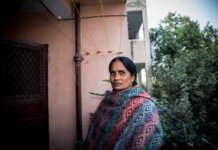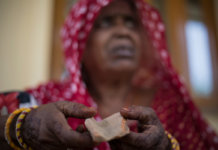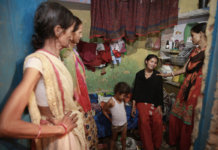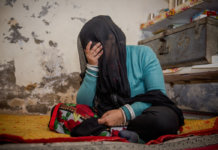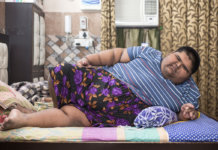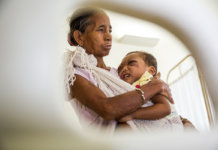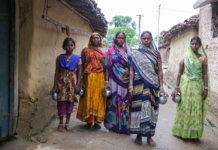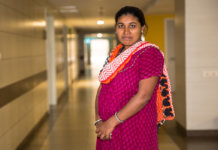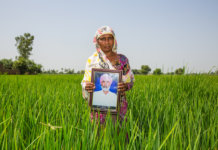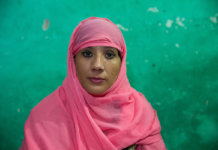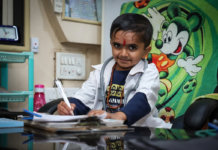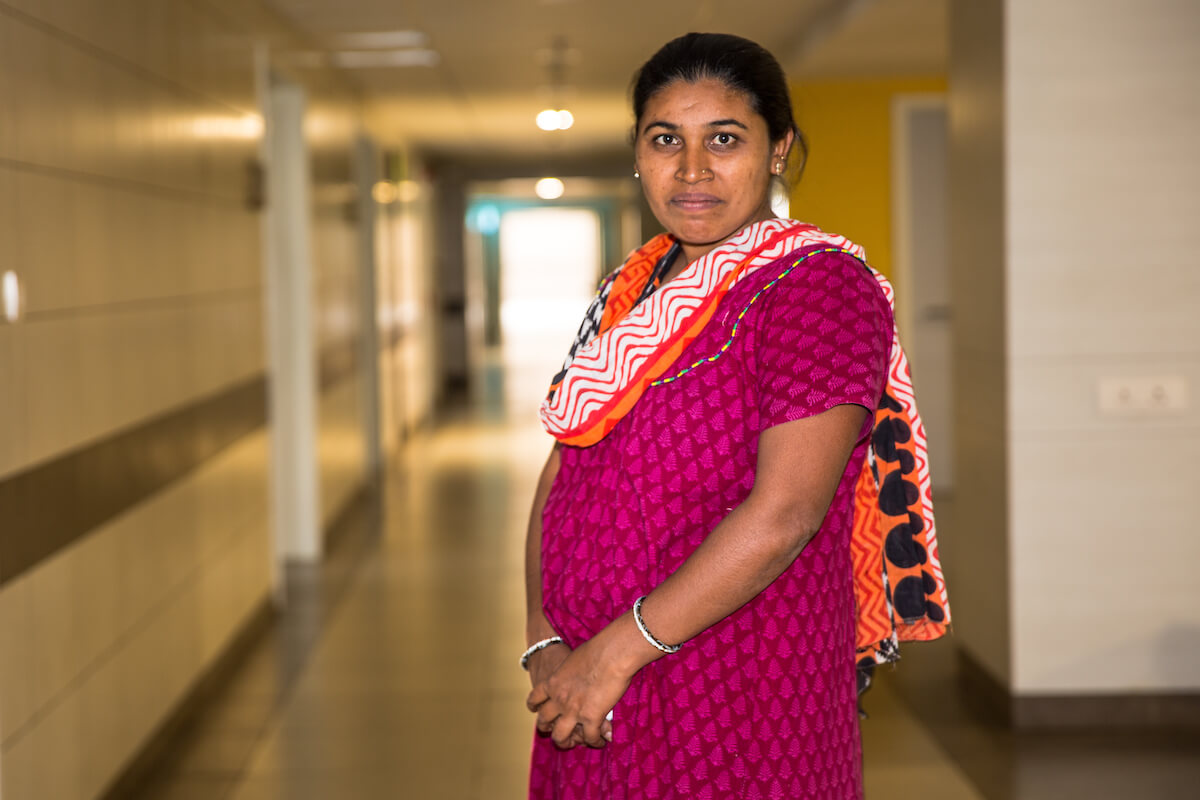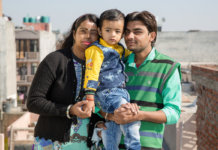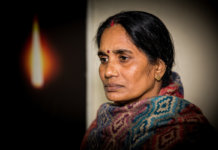As she sits and strokes her pregnant stomach Jagruti Bhoi thinks for a moment, and recalls how the last couple from India treated her.
‘Just two months after I gave birth they disappeared,’ surrogate Jagruti, 28, said. ‘They had been lovely. But as soon as the breast feeding was over they disappeared and I never heard from them again.
‘I know other surrogates in this clinic who still keep in touch with their couples today. One couple is American and they send photos of the baby on the surrogate’s birthdays. But when you have a couple from India it’s different.’
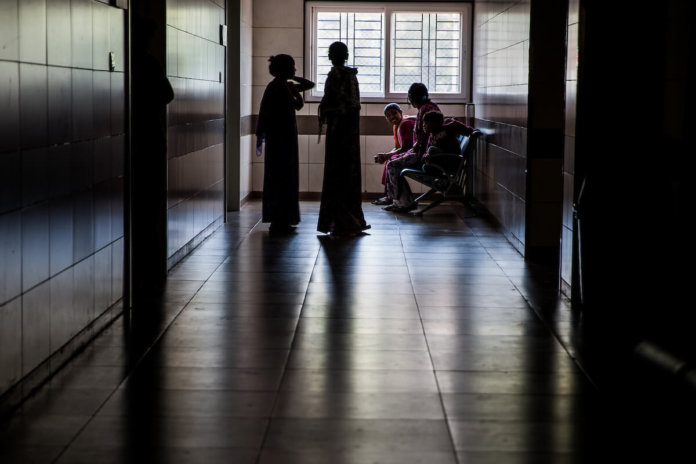
Since the India government banned foreign couples from using Indian surrogacy only Indian nationals now fill the waiting list of clinics, which was once home to the world’s most thriving industry.
Dr Nayana Patel, from the Akanksha Hospital & Research Institute, in western India, has seen her clinic completely change since the new laws came into practice on November 3, 2015.
‘Since I started my clinic 13 years ago I’ve seen great changes in this industry,’ Dr Patel explained. ‘At one time a third of my patient list were foreigners, now they’re all from India. The ban hasn’t affected business so to speak, but it has changed everything for the surrogate. It has changed their experience. Many say they get treated differently by foreigners. And now these news surrogates will never get to experience that.’
Dr Patel set up her surrogacy clinic in 2004, in Anand, outside the city of Ahmedabad, in the state of Gujarat, and quickly became one of the most respected and popular surrogacy clinics in the country with over 80 surrogates a month.
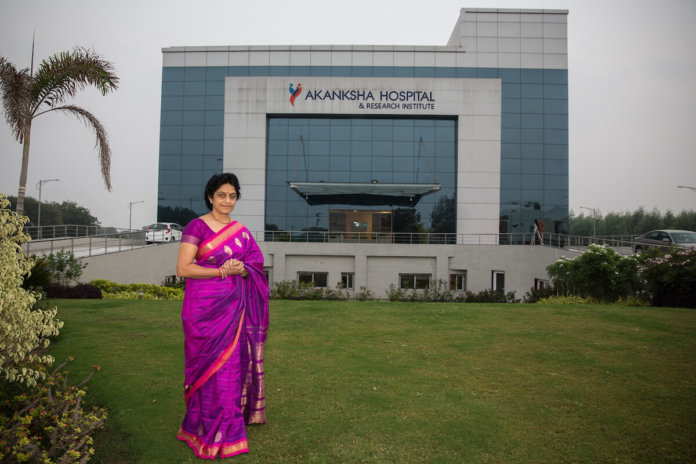
Dr Patel used a traditional house to accommodate her surrogates for many years and had a separate clinic for her work. But in 2016 she spent a vast figure to build her dream hospital and now her surrogates live on the ground floor of the institute distributed over 12 wards.
‘This was my dream,’ Dr Patel said. ‘I’d always wanted to build my own clinic like this. But as soon as my clinic was finished the ban came in. I have hundreds of foreigners still emailing me daily asking when I think the ban will change, but I don’t think my foreign clients will ever be able to come here now. Surrogacy in India has changed for good.’
Trupti Rajpul, 32, is a surrogate co-ordinator, at Akanksha Hospital & Research Institute, after she was a surrogate herself in 2008 for a US couple from New York. She started working for Dr Patel in 2013 after she asked for a job. But Trupti feels sorry for the surrogates now working.
‘It’s different now,’ she said. ‘Foreigners are more generous and emotional. It’s been ten years since I was a surrogate but I still get a gift on my birthday and a photo of the child. All couples from India are not bad but once they’ve had their baby they don’t keep in touch with their surrogate.’
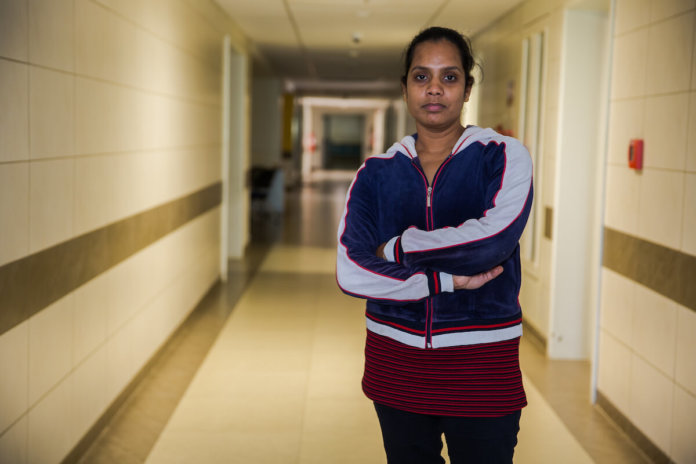
Trupti was given an extra $2,200 (£1,500GBP) by her US couple, on top of the Rs 250,000 (£2,800GBP) paid to her by the clinic. She said the extra amount meant she was able to buy her house.
Now, Trupti looks after the 12 wards of ten surrogates in the clinic and makes sure they’re happy and if they need anything she reports back to Dr Patel.
Surrogate Jagruti, 28, from Gujarat, is currently six months pregnant, and was a surrogate for the first time in 2016, both for couples in India.
‘My first couple stopped contacting me two months after giving birth. They just disappeared. They were lovely and very kind to me but they just never kept in touch. I have no idea what that baby girl looks like now aged two. I often think about that little girl but I guess I’ll never see her again.’
Jagruti has two daughters aged ten and seven with her husband, but has found the money she has earned from surrogacy a huge help paying for their education.
First time surrogate Niroo Parmar, 25, from Ahmedabad, is currently five months pregnant, and admits all the surrogates in the clinic reminisce about past couples from over seas.
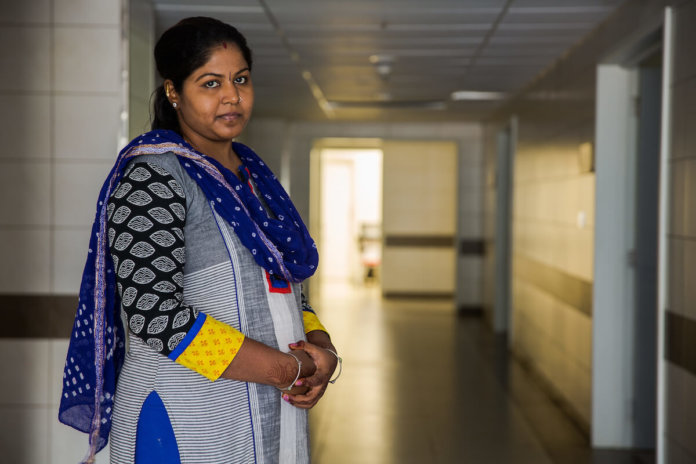
‘I’m carrying a baby for a single man from Delhi but I’ve not met him yet,’ she said. ‘The experienced surrogates here always talk about their previous couples. British couples still send gifts on the surrogate’s birthday. It seems they’re more emotional and more thankful to the surrogate for helping them fulfil their dream of having a family. They seem more grateful. And ultimately, when foreigners were allowed, the extra payments were better. But it’s a different environment now I guess.’
Like all of Dr Patel’s surrogates, Niroo gets paid a set amount. If the surrogate is carrying one child, they get paid Rs 25,000 (£280GBP) after the 4th month and another Rs 25,000 after the 8th month and then Rs 350,000 (£3,900GBP) on delivery of the baby. If they’re carrying twins they get an extra Rs100,000 (£1,100GBP).
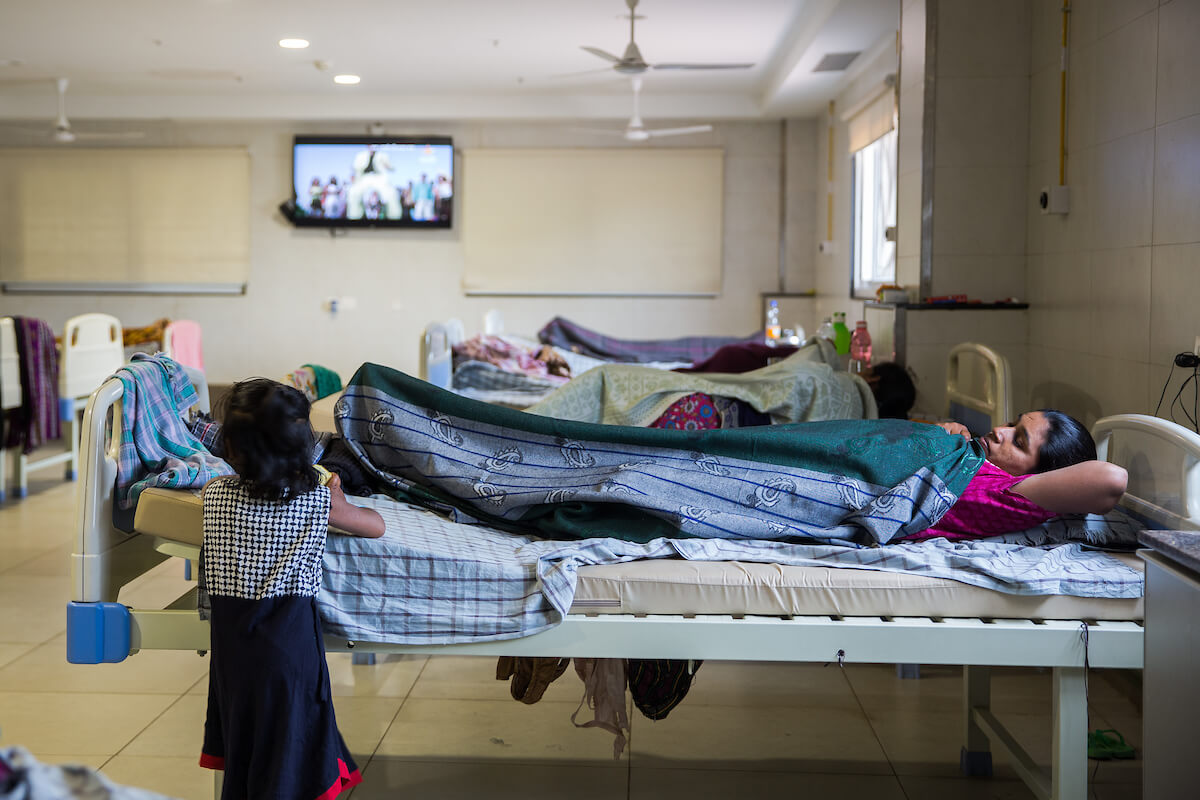
Dr Patel has the same values and belief in her work as she did when she first opened her clinic. ‘These women would never be able to make this amount of money doing a normal job. If they have the support of their husband, and already have children, and it’s something they want to do, then it’s money that goes on to change their lives.
‘The ban has meant change for the hundreds of foreign couples who want to come here and the surrogates themselves. I think the main difference is that foreign couples are not ashamed of using surrogacy but parts of the Indian culture are very conservative so it means many couples try to hide it from their neighbours and community. They’re more secretive and conservative. But foreign couples are so happy and open about it that they shower their surrogates with love and affection and appreciation. Now, the surrogates don’t benefit as much as they used it. My heart bleeds for the 200 plus foreign couples that still email me and hope that something will change and I feel regret for the surrogates. It was an unnecessary change. I woke up one morning and the ban was in place, just like that. It’s been sad to see.’

